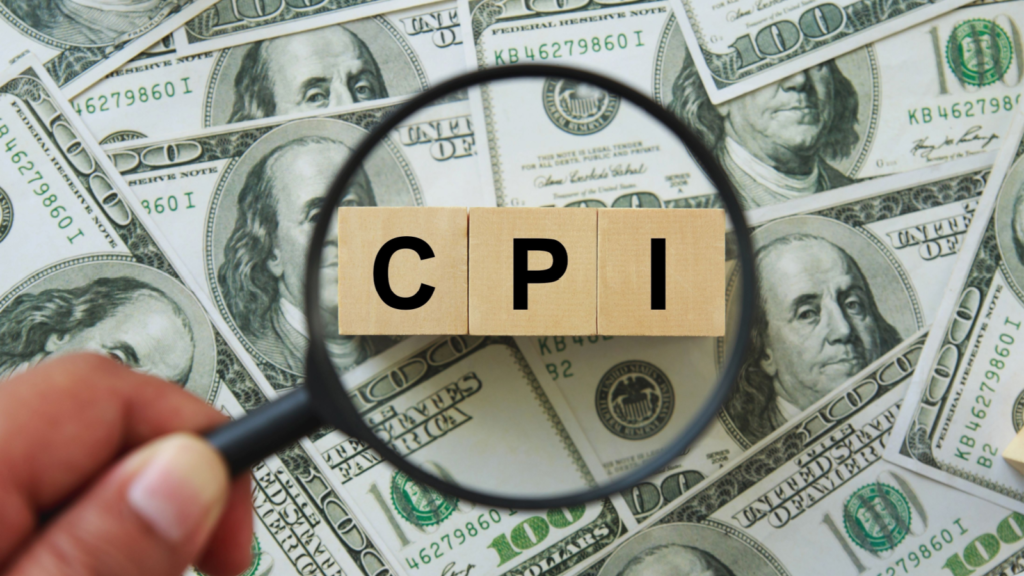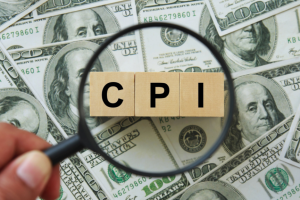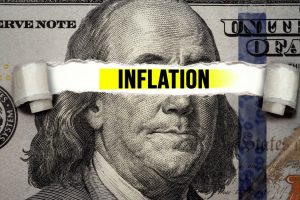
Stock market crash fears are eating up Wall Street today ahead of Wednesday’s crucial Consumer Price Index (CPI) report. Inflation reports have been one of the major drivers of both the Federal Reserve and stocks over the past year and a half or so. This time around should be no different.
Wednesday’s impending CPI report for June has economists and analysts everywhere nervous. Their biggest concern is a potential reversal of the recent disinflation trend. Indeed, despite concerns that inflation would prove overly resistant, prices have been surprisingly malleable this year.
Compared to annual inflation of more than 9% in the summer of 2022, inflation has slowed tremendously this year. Prices rose just 0.1% from April to May of this year, representing just 4% annual inflation, the smallest increase since March 2021. By most standards, this is within a high — but acceptable — range. While this is mainly attributable to decreases in the Energy index, which fell 11.7% year-over-year in May, it’s still considered a general qualification of the Fed’s rate hike efforts to this point.
Indeed, core inflation, which excludes historically volatile price categories like Food and Energy, is actually up 5.3% as of May.
The Fed has raised rates more than 10 times this cycle in pursuit of its long-stated 2% inflation goal. With the Fed’s rate hike pause at its last Federal Open Market Committee (FOMC) meeting, the results of this week’s CPI will likely set the stage for the Fed’s next interest rate decision, scheduled for July 25-26.
Stock Market Crash Concerns Elevated Ahead of Uncertain CPI Reading
Stocks are hesitant to make any progress to start this week, with investors likely preoccupied with concerns over the long-term impact of a worse-than-expected inflation report.
According to the Cleveland Fed’s Inflation Nowcast tool, annual inflation is expected to fall to just 3.2% in June, a notable deceleration from May’s 4% reading. Core CPI is also expected to fall slightly to 5%.
Economists believe the Fed is on the “last mile” of its inflation race after more than a year of sometimes-drastic rate increases. Unfortunately, many analysts have speculated the last hurdle may be the tallest: The Fed may have to levy even more aggressive rate hikes to lower inflation down to its goal.
Many agree the consequences of a more hawkish Fed could be the final straw to push the economy into recession. This wouldn’t be without precedent.
Indeed, the U.S. added just 209,000 jobs in June, well below most economists’ projections of 225,000 net jobs. This represents the puniest monthly jobs report since December 2020.
That said, other aspects of the labor market are surprisingly robust. The average hourly earnings growth held firm at 0.4% from May, while unemployment actually fell to 3.6% from 3.7%.
Recession Fears Loom Large Ahead of Potential 11th Rate Hike
With both unemployment and inflation at lukewarm levels, the Fed is left with a mixed bag to evaluate at this month’s policy meeting. While inflation is still well above the Fed’s 2% goal, the economy is in something of a fragile place. Further tightening could result in an eventual recession, as many economists projected to hit in the second half of 2023.
As it stands, traders are pricing in a roughly 92% chance the Fed will raise rates a quarter point, or 0.25 basis points, on Wednesday, according to the CME FedWatch tool.
This may well prove the final rate hike in the Fed’s tightening cycle.
“We continue to expect that [the] Fed will soon reach its terminal rate, bringing it closer toward the end of its most aggressive tightening campaign in generations,” Candice Tse, Global Head of Strategic Advisory Solutions at Goldman Sachs, told CNN Business.
Unfortunately, fears are still looming large that an additional rate hike may well prove the straw that broke the camel’s back regarding an eventual economic downturn. Either way, this Wednesday’s CPI report will prove instrumental in informing the Fed’s decision, and the state of the U.S. economy, stock market crash concerns aside.
On the date of publication, Shrey Dua did not hold (either directly or indirectly) any positions in the securities mentioned in this article. The opinions expressed in this article are those of the writer, subject to the InvestorPlace.com Publishing Guidelines.




